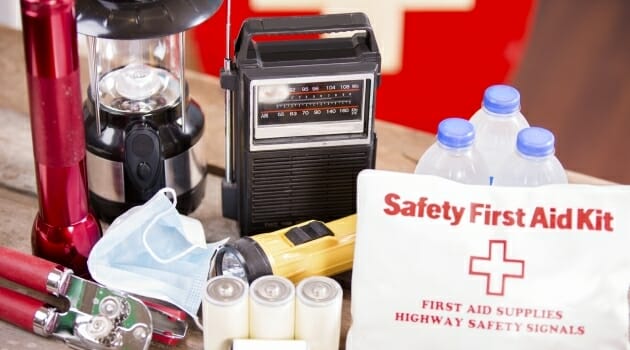The Resort Municipality of Whistler prepares Whistler for emergencies and provides leadership during a local emergency. In an emergency, our staff will work with partners, including the RCMP, Whistler Fire Rescue Service, the BC Ambulance Service, the Province of B.C., community organizations and businesses, other local governments, and levels of government.
The first step in being prepared is to know what hazards exist in the Whistler area. Learn about Whistler’s hazards using the Province of BC’s Hazard Map. Then prepare: store emergency supplies at home sufficient for up to two weeks and put together grab-and-go packs for each member of the family if an evacuation is required.
Other emergencies can also occur in Whistler, such as severe weather, avalanches, power outages, and pandemics.
View important information related to all hazards that could occur in Whistler.
Be prepared
Sign up for Whistler Alert
Build your household emergency kit
Given Whistler’s location, you should be prepared to be self-reliant for food, water, and medical supplies for up to two weeks. Learn what should be in your emergency kit.
Prepare a Grab-and-Go Bag
In the event you are evacuated from your home, a grab-and-go bag will ensure you have all the necessities ready to leave with you when you’ve been alerted to evacuate. Learn what should go in your grab-and-go bag.
Make your Household Emergency Plan
When an emergency strikes, it’s critical to have a plan and that members of your household are aware of it. An emergency plan prevents the need to make life-saving decisions when you’re under distress. Build your own Emergency Ready Plan online. Then exercise your plan at least once per year.
Plan your transportation
Travelling by car
Keep your electric vehicle battery at least half charged or your fuel tank half full. Be sure to have an emergency kit in your car and the basics to handle any minor vehicle issues, such as flat tires or overheating.
During an evacuation, to reduce traffic, take only one vehicle and try to fill every seat. Plan to drive neighbours and coworkers without their own transportation. Don’t let a seat go empty.
Ride sharing
If you don’t have a vehicle, talk to friends, extended families, neighbours, and coworkers about saving you a seat in the event of an evacuation.
If you have a disability and cannot travel to a Central Muster Point or need assistance to evacuate, phone the RMOW Public Information Call Centre at 604-932-5535 to arrange a pick-up directly from your residence. You will be asked a series of questions so that emergency officials can dispatch the appropriate transportation resource—this may be a taxi, bus, or ambulance. If you require emergency medical care, call 911.
Prepare your home for emergencies
Preparing your home for emergencies starts with knowing where utility shut-offs are and ensuring your insurance coverage is up-to-date. Learn more about preparing your home for an emergency, and FireSmart recommendations.
Bookmark or preprogram your local and trusted information sources
- Whistler.ca website
- Sign up to receive notifications through Whistler Alert
- Instagram: @rmwhistler
- Facebook: @rmwhistler
- X: @rmwhistler
- Pique Newsmagazine
- Mountain FM 102.1
Assess your property for wildfire risk
Reducing Whistler’s wildfire risk is a shared responsibility and starts at home. Learn how FireSmart can reduce the risk of wildfire affecting your home, property, and neighbourhood.
Additional emergency preparedness for people with disabilities
Be ready with instructions for emergency services personnel or others who may be assisting you. Instructions could include:
- Preferred method of evacuation (assisted or non-assisted)
- Operating or transporting necessary equipment
- Medications and medical equipment needed when you leave your home
- What out-of-area contacts should be contacted
If you have difficulty speaking, consider having this information printed on a card.
If you require assistance to evacuate and utilize a Teletypewriter (TTY), please dial 711 (TTY to Voice) or 1-800-855-0511 (Voice to TTY) from your TTY device, and a TELUS Relay Agent will answer. Provide the RMOW Public Information Call Centre number (604-932-5535) to the TELUS Agent so they can connect you with the RMOW Call Centre.
Deaf and hard-of-hearing people can pre-register for E-Comm’s text-to-contact 911. Please note that during mass evacuation events, first responders may be unavailable to assist.
View Resources for People with Disabilities by PreparedBC. (PDF)
View Personal Emergency Planning Checklist by the Disability Alliance BC. (PDF)
